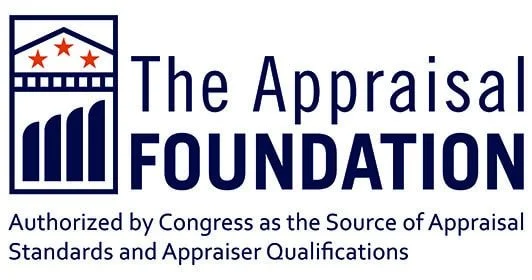TAFAC Summary
TAFAC Summary
The Appraisal Foundation Advisory Council (TAFAC) gathered in Crystal City on both February 1 and February 2, 2024, with notable attendees including Betsy Hughes, Reginald Carter, and myself, Lisa Meinczinger. Byron Miller and Chris Posey were also present, ensuring a strong representation of the Relocation Appraisers and Consultants (RAC).
On February 1, the Council to Advance Residential Equity (CARE) held a meeting, showcasing its ongoing developmental phase. The council actively seeks participation from newer organizations and is at the forefront of championing accountability for appraisers, particularly in addressing bias cases.
The upcoming meeting of the Appraisal Qualifications Board (AQB) in March, as indicated by Brad Sweeney, will focus on three key areas:
Reassessment of qualifications, questioning the necessity of a college degree and exploring the inclusion of relevant college courses in qualifying education.
Exploration of other fields that can contribute to experience hours, such as real estate agent/broker experience, home inspectors, assessors, finance majors, etc.
The concept of a comprehensive "super exam."
Commencing from January 1, 2026, a mandatory valuation bias class will be required. Existing appraisers must complete a 7-hour class, while incoming and trainee appraisers need an additional 1-hour exam. A four-hour update every two years will follow this initial class.
Presently, there are only two PAREA programs available, both from the Appraisal Institute, covering Licensed Residential and Certified Residential. McKissock has ceased program development, but five providers are actively developing 12 conceptual programs. Opteon has announced its program development, awaiting approval in New York, Georgia, and Nevada. Currently, the Foundation is stating that there are 3,600 interested parties for this program. The question was posed if the Certified General will be explored.
Michelle Bradley provided an update on the integration of the Ethics and Nondiscrimination section into USPAP, noting that there is currently no expected update. The Resource Manual will mandate a 7-hour update every two years, with recent changes and additions accessible on the website. These modifications specifically address issues of discrimination, including aspects related to the usage of Artificial Intelligence.
During the week of February 6, the committee delved into additional guidance on critical topics such as upzoning and confidentiality. The RAC has scheduled a town hall in March to thoroughly discuss upzoning and its implications. Individuals are encouraged to forward any topics requiring guidance to the foundation or Michelle Bradley.
Dave Bunton announced three available public interest trustee appointments, one is a three-year term and two are four-year terms, specifically tailored to Business Valuation, Fair Housing Advocate, International Valuer, Personal Property Appraiser and Residential Real Property Appraisers. Interested individuals from this group are urged to apply through a blind process, with interviews based on qualifications. The deadline is March 1, 2024.
Sponsorships are transitioning to partnerships within the Foundation, eliminating financial obligations but introducing certain requirements. Organizations seeking partnership must adopt and teach USPAP and be nonprofit entities, among other stipulations. The foundation plans to distribute a diversity survey, encouraging everyone to contribute insights into the profession's growth over the years.
With Dave Bunton's impending retirement, a search team is being assembled to hire his replacement. The meeting concluded with a panel discussing different pathways for licensing. Bill Garber represented the Appraisal Institute and the PAREA program, Michelle Bradley outlined the traditional Supervisor/Trainee path, and Melissa Bond presented a Practicum approach. The next meeting is scheduled for June 25th in Washington DC.
Best Regards,
Lisa Meinczinger, SRA, AI-RRS, CRP, ASA, CDEI
RAC Vice President
The Appraisal Foundation Advisory Council (TAFAC) is composed of 60 non-profit organizations and government agencies. TAFAC member organizations represent various professions and occupations with an interest in valuation including appraisers, home builders, real estate brokers, financial institution regulators, federal land acquisition agencies, the secondary mortgage market, and the private mortgage insurance industry.
Officers:
Chair – Linda Selvin
Vice Chair – Malinda Griffin
Secretary – Lisa Meinczinger
Immediate Past Chair – Russel Rice

